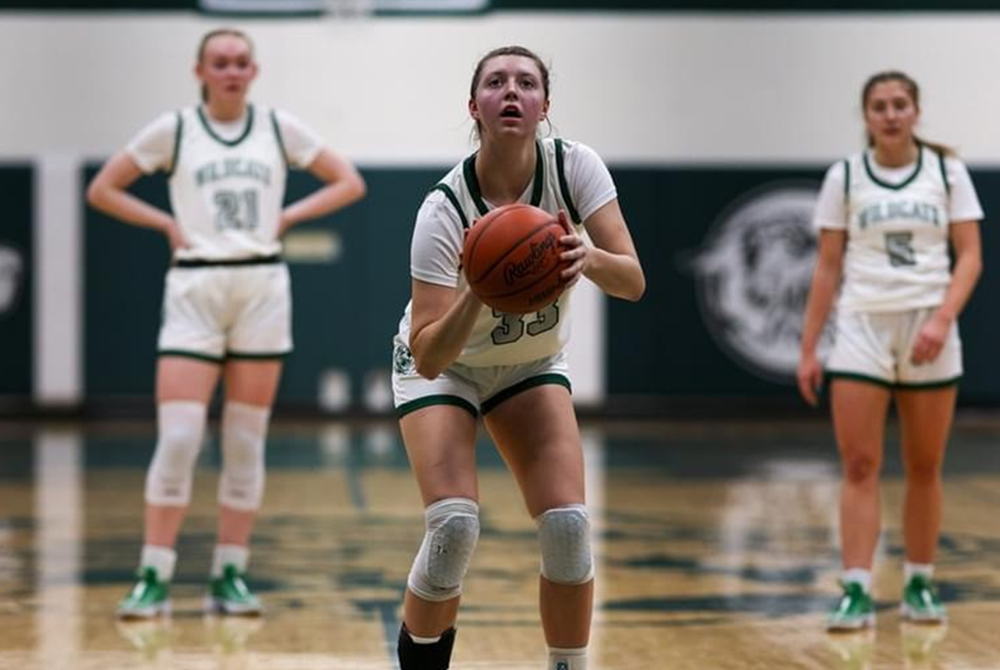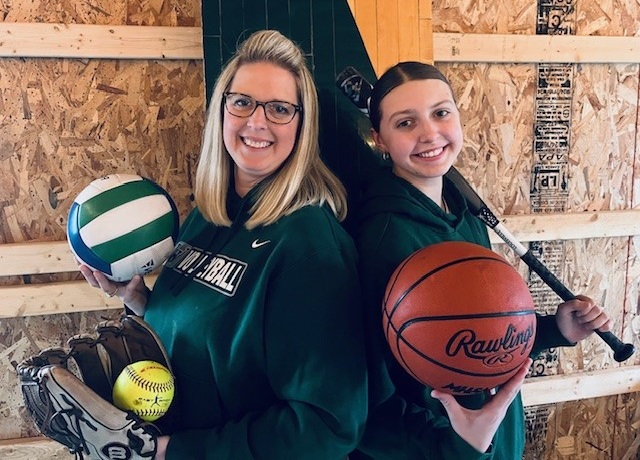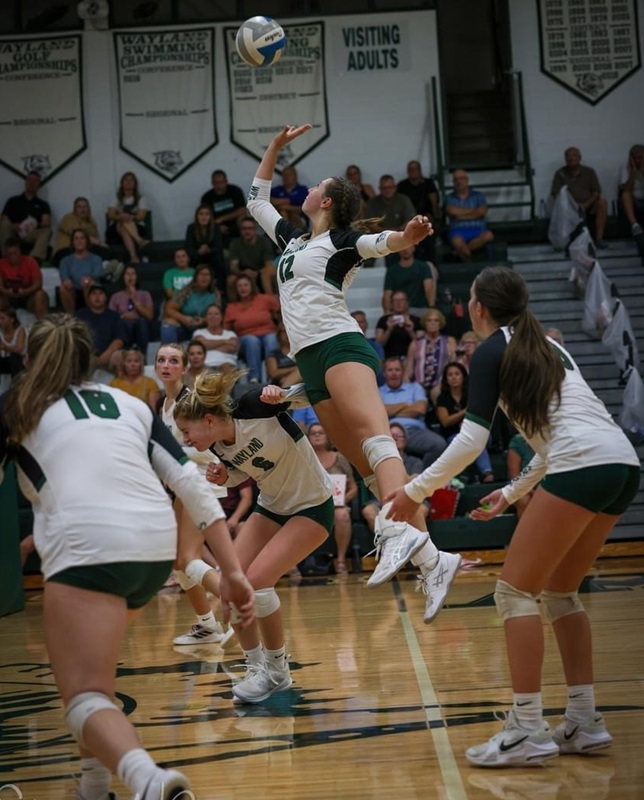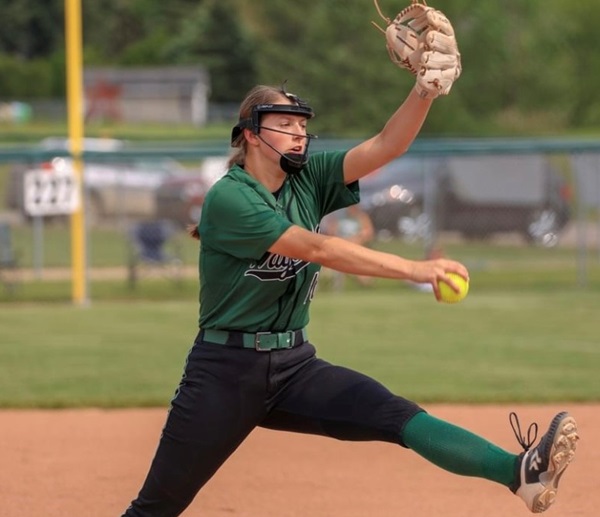
Launching Pad and Destination
November 30, 2012
By Rob Kaminski
MHSAA benchmarks editor
Lamont Simpson’s “home” is a place he visits twice a week during his peak season, when NCAA Division I officiating duties have him navigating the Midwest like a person in a race for frequent flyer miles.
His travels pale in comparison to Stacey Thomas, who has lived in Latvia, Turkey and Sweden thanks to the game of basketball.
Then there’s Jim Garofalo, who authored his own cheat sheets to assist with the eight different rules books which intertwined during a period of time in his hockey officiating career, which included a trip to the Olympic Games.
So, naturally, there’s Simpson officiating an MHSAA Pre-District Football Playoff game in Detroit last fall, taking a postgame earful from a father who believed his son was the subject of a cheap shot during the game.
There’s Thomas, blowing a whistle with teenagers at the Healthy Kids Club in Detroit this summer
There’s Garofalo, ditching seven of the rules books over the last few years, and using only one now: the high school rules book.
It’s true that Simpson is at the pinnacle of his career, working Big Ten, Mid-American Conference and Horizon League men’s basketball, in addition to the WNBA in the summer, where he recently worked his eighth straight WNBA Finals.
And, yes, Thomas has her sights set on the NCAA Division I level and beyond, as her officiating career is still in its infancy.
Sure, Garofalo has achieved much on the ice both as an amateur and professional referee.
But, like so many in the officiating family, they deeply appreciate their roots and the people who helped them along the way. It’s a people business, first and foremost.
This week, continuing its "Making – and Answering – the Call" series, Second Half introduces Simpson, an officiating veteran of more than three decades. Profiles of Thomas and Garofalo will follow later this month.
It's about patience and honesty
The late June heat at the Kensington Valley Golf Course doesn’t seem to bother Lamont Simpson. The secret to his cool aura lies in his hand, a golf ball which he has identified as “Ref” in permanent marker.
Simpson is indeed a ref – permanently – thanks to a suggestion from Robert Menafee during the late 1970s, and the 1977 Detroit Redford grad has been most comfortable in the heat of competition’s spotlight ever since.
“I was at a football game at Henry Ford a year or two after high school, and Mr. Menafee, my former coach, saw me and asked what I was doing,” Simpson recalled. “He said I should try officiating. That’s the first I’d ever thought about it.”
It would be the impetus to a craft that has consumed nearly 30 years of Simpson’s life, as he now jets around the country as a top-flight NCAA Men’s Basketball official, and one of the senior officials in the WNBA, where he recently called his eighth consecutive Finals.
For all of his accomplishments, Simpson can still recall with great detail various moments that led to his current standing; mental snapshots which help to explain why he still registers as an MHSAA football official each year, and why he gives so freely of himself to anyone interested in getting a start in officiating.
“I still remember my first game, thinking, ‘I can’t believe I’m doing this,’” Simpson recalled. “In my second year I did a PSL (Detroit Public School League) playoff game, and to this day, walking into that gym is still one of my most gratifying times. There were about two or three thousand people in the stands, and I remember the butterflies.”
Fast forward to the Pontiac Silverdome in November 1992. In the waning seconds of the MHSAA Class A Football Final, a pigskin floats in the air doing its best butterfly imitation. Following a double-reverse pass, the tipped ball is finally corralled by Muskegon Reeths-Puffer’s Stacey Starr at the 10-yard line and carried into the end zone to give his school a 21-18 win over Walled Lake Western in one of the most frenzied finishes in MHSAA Finals history.
Simpson had a good view of the moment.
“I was the back judge, working my first MHSAA Final. My first thought is to get in position and then, ‘Oh man, the ball is tipped,’” Simpson replays in his mind. “You’re part of a game-ending situation and you don’t want to screw it up. You almost become a fan in a game like that—a moment like that—but you’ve got your job to do. Afterward, when it was all over, I just remember thinking, ‘What a football game I got to be a part of.’”
 Simpson would also get a shot as a Football Final referee in 2003, and worked the 1995 Boys Basketball Final which featured Flint Northern’s team led by future MSU Spartans Mateen Cleaves and Antonio Smith. But, Simpson remembers that game for a different reason.
Simpson would also get a shot as a Football Final referee in 2003, and worked the 1995 Boys Basketball Final which featured Flint Northern’s team led by future MSU Spartans Mateen Cleaves and Antonio Smith. But, Simpson remembers that game for a different reason.
“It was the last time that the Final was worked with a two-person crew.” Simpson said. “I remember the great athletes in the game, and being part of history as the last two-man crew in the Finals is something to be proud of.”
Simpson is quick to point out, however, that simply having what it takes to officiate an athletic event at any level is something of which to be most proud. While it’s natural for new officials to covet championship assignments and careers beyond the high school level, Simpson stresses patience, hard work, and – in many cases – honesty with one’s own performance as the most valuable traits an official can possess.
“I work and speak at a lot of camps, and I stress that people need to work at the craft – mechanics, rules, physical appearance – and above all have patience.” Simpson said. “The thing I see in younger officials now that is so different than when I was coming in, is they don’t have the patience; they don’t want to pay their dues.”
Sometimes, even the greatest amount of patience, perseverance and hard work isn’t enough. And, that’s where honesty in self-evaluation comes in. Yes, there are egos in officiating. To some extent, it’s a prerequisite. However, humility can also lead to finding a niche in the game.
Simpson himself is an example.
“My goal was to work in the NBA, but after seven years in the CBA, I realized that it probably wasn’t going to happen,” he said. “But, you know, there was still a lot of good basketball out there to work. When I left the CBA, I did so on my own terms, and went to work on my college career. So, sometimes you weigh your options and focus on the next goal.
“The point is, work at being the best at whatever level you work. I’ve seen guys spend a lot of money at the same camps year after year, and never get that college assignment,” Simpson said. “Maybe it’s time for them to focus on a different level.”
In that respect, the very thing that drives officials and gets them in the game in the first place can by the very thing that drives them out. Passion and drive, the need to reach the next level, can keep people focused in their chosen quest; the frustration of not advancing can also lead to their exit.
True, Simpson is one of 32 officials in the WNBA, and just worked his eighth WNBA Final. He has a full NCAA Division I men’s basketball schedule. But, the father of three grown children and grandfather of five cannot express enough the fringe benefits that officiating brings at any level.
“You become a better people person through officiating. Your communication skills are sharper,” he says. “Not only what to say and when to say it, but you learn to listen. You have to be a listener in this business, and that’s a great skill to have in life.”
It also provides the opportunity to be a teacher and recruiter. It’s one of the reasons he’s closing in on nearly three decades as an MHSAA registered official. What better way to pass the knowledge forward?
“No matter where you end up, always remember where you started, and keep your friends,” Simpson said. “I return every call, every text. I still talk to the same guys I grew up with. From an officiating standpoint if we could all just bring along one person at a time, think of the effect that would have.”
Simpson does more than his share, from speaking at camps and clinics – all voluntarily, mind you – to the behind the scenes recruitment, such as the time he surrendered all of his baseball umpiring equipment to a friend under the condition that person register with the MHSAA and begin working games.
He thinks back to the suggestion from Coach Menafee frequently. “Oh, all the time,” Simpson said. “I think of the places I’ve been, the things I’ve seen, the people I’ve met and the person I’ve become. This is what being an official does.”
There’s a scenario that Simpson replays time and again when he talks of officiating, and it doesn’t pertain to his collegiate or professional experience. In fact, it’s not even about basketball.
“It’s Friday night, and you’re working the big rivalry game between two communities. You get on the field, the bleachers are packed, the bands are playing, and you’re right in the mix,” Simpson says with reverence. “That’s it right there. It doesn’t get much better than that. That’s it.”
PHOTO: Lamont Simpson officiates WNBA games during the summers, including this contest involving the Atlanta Dream and player Erika de Souza (14).
NOTE: This is the fifth installment in the series "Making – and Answering – the Call" detailing the careers and service of MHSAA officials. Click the links below to view the others.

Laker Following Mother's Path as Wayland Multi-Sport Standout
By
Steve Vedder
Special for MHSAA.com
March 5, 2024
When Wayland junior Harmony Laker opted to embrace athletics many years ago, she never worried about following some pretty impressive footsteps nor matching the hefty accomplishments of someone very close to her, a mentor who had herself been a standout three-sport athlete in high school.
In fact, Laker has wound up starring in the same three sports in which her mother, 2000 Wayland grad Kara Potter, also excelled in high school – basketball, volleyball and softball.
Kara was all-conference in all three sports and earned all-state recognition in volleyball and basketball. Harmony has been all-league since her freshman season in the same three, and all-region in volleyball and basketball.
Just a chip off the old block? Maybe, says Harmony.
 But if there is anything mother and daughter have in common it's a love of sports.
But if there is anything mother and daughter have in common it's a love of sports.
"They introduced me to sports, and I've always strived to be like my parents," Harmony Laker said. "I was always drawn toward basketball, volleyball and softball. That's where my heart has always been, on a court or a field.
"I always wanted to play three sports; that's been my goal since middle school. Like my mother, I've always taken them seriously."
Like her mother, Laker hasn't just lettered in three sports – she's been outstanding. As a junior, she's already shattered the 1,000-point career basketball mark, reaching the milestone when she scored 38 points against Grand Rapids South Christian in late January. She's averaging 19 points, seven rebounds, four steals and three assists per game.
In volleyball, Laker had 864 kills, 513 digs, 80 blocks and 64 aces while serving 90 percent this season.
In softball, Laker has a 29-4 record as a pitcher over her first two seasons while batting .449 with six doubles and three homers as a sophomore. She's twice made all-conference in that sport, leading Wayland to two conference titles.
Kara Laker – also Wayland’s volleyball coach – said she and Harmony's father, Lance, a former varsity basketball coach at Middleville Thornapple Kellogg, never tried to edge their daughter toward athletics.
But when Harmony took up a variety of sports, the parents had one standing rule: Commit to the sport you're playing at the time. Worry about the other sports when it's time.
 "Sports has always been a big part of our lives," Kara said. "We've never pushed our kids, but we've told them if you're going to be successful, you have to put in the time. My parents wanted us to do what we could (in sports). It was always in our prayers that our kids would truly love all sports. We're a competitive family, and we've always been drawn to sports."
"Sports has always been a big part of our lives," Kara said. "We've never pushed our kids, but we've told them if you're going to be successful, you have to put in the time. My parents wanted us to do what we could (in sports). It was always in our prayers that our kids would truly love all sports. We're a competitive family, and we've always been drawn to sports."
The Laker family navigates a busy sports schedule. Liberty Laker plays volleyball at Grace Christian University, eighth grader Charity plays the same three sports as her mother and sister, and third grader Christian plays football, baseball and basketball.
"We divide and conquer," Kara said of her and her husband following the robust schedules of four children.
Harmony's first memories of sports involve supplying water to her father's basketball players. From there, she progressed to copying the three sports in which her mother excelled.
Kara won Wayland's coveted Multer Award as the school's top multi-sport athlete. Harmony hasn't won the award yet, but seems a shoo-in before she graduates in 2025.
Kara said it's tougher for athletes now to play three sports as AAU and travel sports often collide with high school athletics. But in terms of playing three, she said that decision has always been left to the kids.
"It's harder these days, but we were three-sport athletes who wanted to be good in all three," said Kara, who admits she's had discussions with Harmony about narrowing her participation list.
"It's actually a discussion we're having at this moment," she said. "A lot of it comes down to coaches and having them all work together so Harmony can play."
 In order of preference, Harmony lists her favorite sports as basketball, volleyball and softball. But when it comes to cutting out a sport, Harmony hedges. If she plays all three as a senior – and that's currently the plan – she'll leave Wayland with 12 varsity letters, a rarity in today's high school sports world.
In order of preference, Harmony lists her favorite sports as basketball, volleyball and softball. But when it comes to cutting out a sport, Harmony hedges. If she plays all three as a senior – and that's currently the plan – she'll leave Wayland with 12 varsity letters, a rarity in today's high school sports world.
Harmony said the advice offered by her parents is the same that trickled down from their parents (her grandparents). Play as many sports as you choose, but also be well-rounded off the courts and fields.
Harmony is a member of the National Honor Society, leads the Wayland chapter of the Fellowship of Christian Athletes, is a member of the student council and has gone on numerous mission trips through her church.
But when it comes to athletics, Harmony is quick to revert to what she was taught early.
"I just want to work at my craft. You're only as good as the time you put in," she said. "My mom and dad have always said it's the heart that makes sports great. There are so many moments which are trials in sports and games, but ultimately that is what's going to make you better.
"Playing with pressure is a privilege. If a game is close and you have to execute, that's a privilege. God has put you out there for a reason, and you take the moments as they come."
PHOTOS (Top) Wayland’s Harmony Laker lines up for a free throw while playing her favorite sport, basketball. (2) Harmony, right, is successfully following in the multi-sport footsteps of her mother, Kara Laker. (3) Harmony Laker (12) soars to get a hand on a ball during volleyball season. (4) Laker makes her move toward the plate as a pitcher during the spring. (Action photos by Shannon N Jessica Photography.) mother/daughter photo courtesy of the Laker family.)

